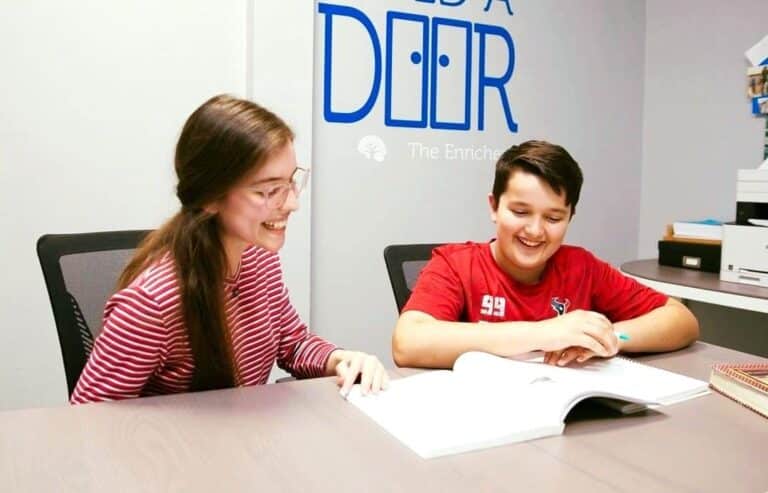I have a 2 year old and an 11 month old, and without fail, for every birthday and holiday, they receive a variety of “STEM toys” from family and friends. On our bookshelf sit Robotics for Babies, Mathematics for Babies, and Neuroscience for Babies. Well-meaning relatives have already made pronouncements like, “Maybe she’ll be an engineer!” or “Maybe he’ll be a doctor!” And maybe they will be those things, but sometimes the aggressive push toward STEM is too much.
What if my children aren’t interested in science, technology, engineering, or math? Are they totally screwed?
Full disclosure: I was an English literature major in college. It seemed like a no-brainer; I’d won awards for pieces I’d written for my school newspaper and I couldn’t imagine a college experience that wasn’t centered around writing. Throughout college, however, I got the same question over and over and over again. “What are you going to do with that?”
That’s the biggest question most non-STEM students get. And I get it! As opposed to students majoring in STEM, students majoring in the liberal arts or social sciences often have a much less clear-cut career path. Inevitably, a child heading away from a STEM path can cause a parent considerable angst – but take a deep breath. The future is still bright, and here’s why.
Non-STEM students are NEEDED.
There is no doubt that experts in science and technology are invaluable, but guess what? They can’t do what they do alone. Once, while unveiling a new product, Steve Jobs said, “It’s in Apple’s DNA that technology alone is not enough – it’s technology married with liberal arts, married with the humanities, that yields us the result that makes our hearts sing.” Jobs was even quoted saying, “I love hiring English majors!” Math and science is one part of innovation, but it’s not sufficient alone. Creative thinkers come up with ideas and find the perfect way to design and market them. Engineers can create a flawless product, but customers are attracted by an equally flawless story framed around it. In short, we truly need all types.
Liberal arts majors can think critically and communicate clearly.
That’s because these skills are taught in the humanities. We learn to craft well-rounded arguments. We find creative solutions to problems. We’ve learned to critically analyze everything we read. We have good ideas, but more importantly, we know how to communicate them with the world. We may not have every single skill listed on a job description, but there’s a good chance we can convince you we do because we’re great with words. We can interact and connect in ways that computers cannot. We’ve developed skills that are invaluable in a wide variety of fields, and that makes us invaluable, too.
Liberal arts majors aren’t pigeon-holed into a specific career path.
While the lack of a clear path can be anxiety-provoking, it can also be liberating. We have basic skills that will serve us well in so many different roles. I spent my first year out of college working in publishing, and then switched gears to writing full-time. After a rollercoaster of life events, I decided to pursue becoming a clinical mental health counselor – and was repeatedly told that my communication skills made it a perfect fit. Have I enviously watched as my STEM friends pursued their wonderfully straightforward career goals? Of course. Has it been thrilling and wonderful to turn passions into a career? Absolutely. And I fully believe that by following your passion, you’re less likely to burn out.
On that note: I cannot encourage strongly enough that non-STEM students pursue a variety of internships during their time in college. Because our path is (typically) not well-defined, “trying on” different careers is crucial. Internships allow you to test the waters of a field before committing to it fully, and it’s an excellent way to get your foot in the door of an organization you do want to work for after graduation.
If I could tell my college self one thing, especially during those days when she wondered what the heck she was going to do after college, I’d tell her this: don’t second guess things. Unlike many of your STEM friends, you’re going to have to hustle and get creative on your professional path… but you’ll have fun doing it. You’ll leave school equipped with so many transferrable and instrumental skills, and there is truly no substitute for pursuing what you love.
The world will always need our brilliant, hardworking, impressive STEM counterparts. But the world desperately needs your child’s non-STEM brilliance, too.
Feeling overwhelmed by college and major decisions? Don’t miss your chance to join The Enrichery’s College Admissions Workshop this summer! From navigating your options to completing your applications, we’ll guide you through the entire process. Let us help you turn uncertainty into confidence. Contact us today to secure your spot and get started on your path to success!





